[ad_1]
Long before Latin music was playing around the clock in every corner of the globe, a couple of Cuban exiles struck the first blow in 1985 with the song Conga. It was a single that Emilio and Gloria Estefan pitched to Sony up to seven times — without any success. But luck was on their side. Conga became Gloria’s first global hit, followed by hundreds more. The 67-year-old artist, who has sold over 100 million records, released Raíces on Thursday — her first Spanish-language album in 18 years.
Seven years after Conga, Emilio himself became president of Sony Latin, and the couple began building an empire based in Miami, from where they helped shape and launch the careers of dozens of Latino artists, including Shakira and Ricky Martin. Miami is the place they call home, like thousands of Cuban exiles. Gloria arrived in Florida at the age of two and never left. Now, she watches with “concern and fear” the anti-immigrant turn of Donald Trump. That’s why she believes it’s more important than ever to celebrate “Latino roots.”
Gloria welcomes EL PAÍS to Sony Studios in New York just days before her latest release. She’s joined by Emilio, who wrote several of the lyrics and looks as happy as if it were the first time they were releasing an album. As they listen to the songs in the studio, they tap their feet to the rhythm and occasionally exchange shy glances. “Yes, we’re happy,” she’ll say later. No less than that.
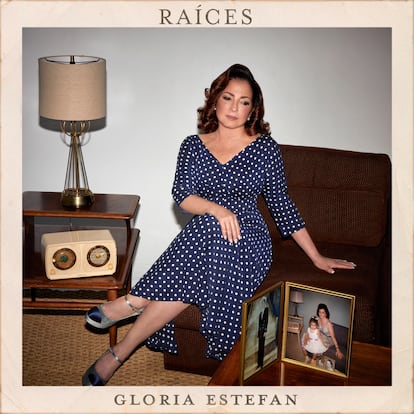
Question. What are your roots?
Answer. My roots are Asturian. My grandfather had a large family in Pola de Siero [a town in the Spanish region of Asturias] and went to Cuba. My grandmother’s grandparents were also Spanish, like most Cubans. I was only in Cuba for the first two years of my life, but I have very strong roots there. My mother instilled it in me; I think she absorbed José Martí. When we arrived in the United States, the idea was to return, and it was very important to her to maintain those Cuban roots in music, in food, in the way of being. And when she saw we weren’t going to return, it became even more important. So, only Spanish was spoken in my home. I grew up listening to Cuban music: Cachao, Celia Cruz, Olga Guillot, La Lupe… And also to people like Nat King Cole, who went to Cuba a lot and my mom was a fan. Andy Williams, the Trio Los Panchos, Javier Solís. All of that is in my roots. I also feel part Lebanese because I’ve been with Emilio longer than without him, and I was able to live very close to his parents, who held on to those roots. So I feel like a citizen of the world; I’m at ease wherever I go.
Q. Will you ever set foot in Cuba again?
A. I set foot in Cuba in 1979, with Jimmy Carter [as U.S. president]. We wanted to get Emilio’s brother and his two sons out. It was very difficult for me; my mother didn’t want me to go. We weren’t well-known yet, but it was tough; it gave me a kind of phobia. I felt what Emilio calls castrophobia, instead of claustrophobia. I started having dreams where we couldn’t leave. I would like to sing in a free Cuba one day, although that dream is becoming increasingly distant.
Q. What is Miami to you?
A. Miami is my home. I lived abroad for a couple of years when my father was in the American army. The happiest years of my childhood were in South Carolina because my little sister, my father, and my mother were together, until he went to Vietnam, and we returned to Miami with my grandmother. Miami is like being in old Cuba and in Latin America, while still being in the United States.
Q. It’s been a while since you sang in Spanish. What does Spanish give you that English doesn’t?
A. It’s the language of my heart. In English, you have to be more careful because in love songs, they accuse you of being too saccharine, or of being too emotionally expressive. Spanish gives me free rein.
Q. You’ve achieved success, awards, and money. You’ve built a family that seems close. Do you have a perfect life?
A. I couldn’t ask for more! We’re a normal family, and like in any family, there are things — but I can’t ask for more because I’ve lived beyond any dream I could have ever had. And yes, we’re happy. We’re a family who loves each other and likes each other, which is the hard part.
Q. Emilio recently told EL PAÍS that the secret to being married for 47 years was to always say yes to you.
A. That’s a joke. But now that I think about it… he’s never said no to anything I’ve proposed to him. We have a lot of respect for each other. If it’s something I have to confront head-on, it’s my decision. Likewise, if it’s something he’s doing with another artist, it’s his decision. We share any of our opinions, but we know how far the manager can go before ruining things for the husband. We’ve learned that over the years.
Q. What does it mean to be Latina in the United States?
A. Right now it’s difficult, and it’s never been difficult for me before. Now I’m a little scared, seeing what’s happening. I’m scared for others, not for myself. And I know from my parents’ experience that you can think everything is perfect, and then suddenly, from one day to the next, everything can fall apart.
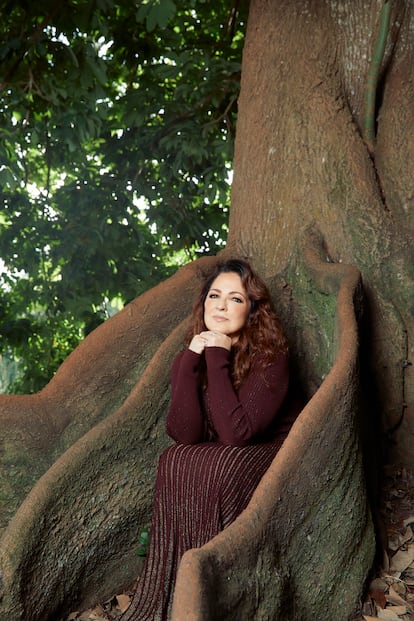
Q. You are talking about the Cuban experience.
A. Yes, one day they had everything and the next day…
Q. Is this a key moment for the United States?
A. Americans who have lived here a long time don’t appreciate how fragile freedom is. Because it’s always existed, obviously depending on who you are, because the African-American community in this country has been through a lot and continues to go through so much. And regarding Latinos, I’m used to the fact that in every election, the last person to enter the country is the one who pays the price. But the things that have kept this country what it is have always been there, and now we’re seeing them falling apart in pieces, like when someone ignores a judge’s order. So, I’m praying a lot and not watching much television.
Q. Does it depress you?
A. It worries me and makes me a little anxious. I don’t like how it makes me feel. Obviously, closing my eyes isn’t the right thing to do, and if the time came that I needed to say something, I would.
Q. You’ve never positioned yourselves politically in the United States.
A. Emilio and I are non-affiliated. We’re neither Democrats nor Republicans. I believe there are two parties, and everyone is in the middle. The extremes are always what you hear the most of, but most people aren’t like that. I have faith in this country, I have faith in the judicial system, but you have to be careful. Democracy is a living, breathing thing, and if you don’t give it oxygen, it can die.
Q. Would you say anything to Trump?
A. If I have something to tell him, I’ll tell him, but he won’t listen to me.
Q. What would that be?
A. Oh my God, I don’t even want to think about it!
Q. It’s said that the Estefans have created an empire. Are you the lady of the empire?
A. Neither of us are. Emilio still feels like an immigrant; every time we go to a hotel, he takes flip-flops. He doesn’t realize what he’s done, nor does he think about it.
Q. Sony rejected your song Conga seven times, and seven years later, Emilio became president of Sony Latin. How did that happen?
A. Well, we convinced them. We were very successful. Emilio started making records, brought Ricky Martin to the Grammys, and it all started happening. [Former Sony CEO] Tommy Mottola is a very intelligent man, and he knew there were people going to Emilio to produce. Shakira came with her first album, and I told her, “Shaki, you can cross the pond.” And to show her how she could succeed in English, I wrote Ojos así, Tú and Inevitable. Shakira is super intelligent and creative, and she immediately got to work, started learning, and started composing in English herself.
Q. Shakira, Karol G, Bad Bunny… are they the parents of the Latin boom?
A. I’m very proud of them. Obviously, they have a different style of music, but that’s not the point: they’re Latino. When I saw Bad Bunny on Saturday Night Live, I was overjoyed because that wouldn’t have happened before.
Q. Do you like reggaeton?
A. There are some that I like, and others that are too graphic. For me, music inspires and makes you happy, but there’s the artist’s freedom of expression. I come from a world that lived on double meanings — in Cuba, everything was double entendre. I speak very clearly, but you have to have romance in life too. There is a reggaeton style that I love that’s fun, but there’s one that is a bit too much for me.
Sign up for our weekly newsletter to get more English-language news coverage from EL PAÍS USA Edition
[ad_2]
Source link

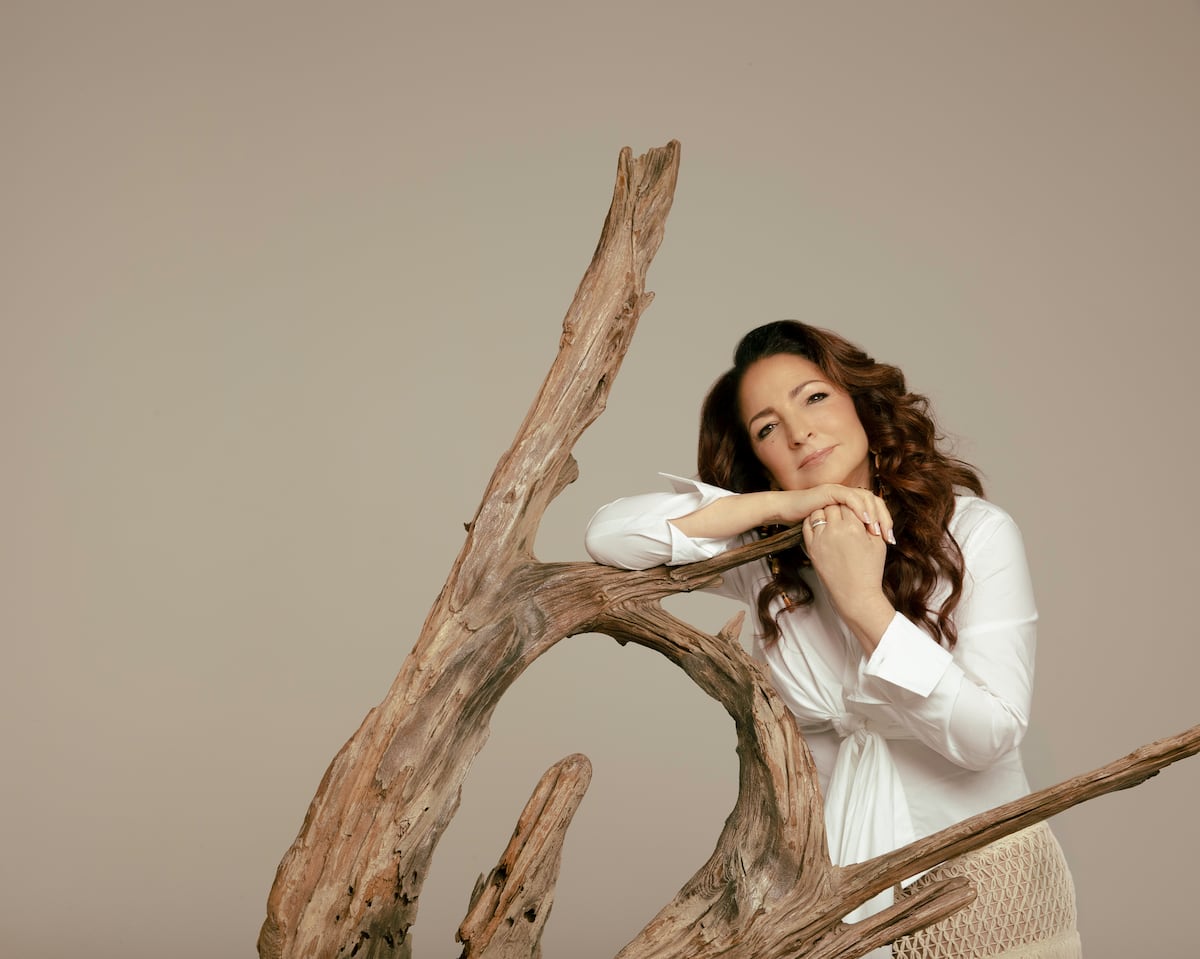

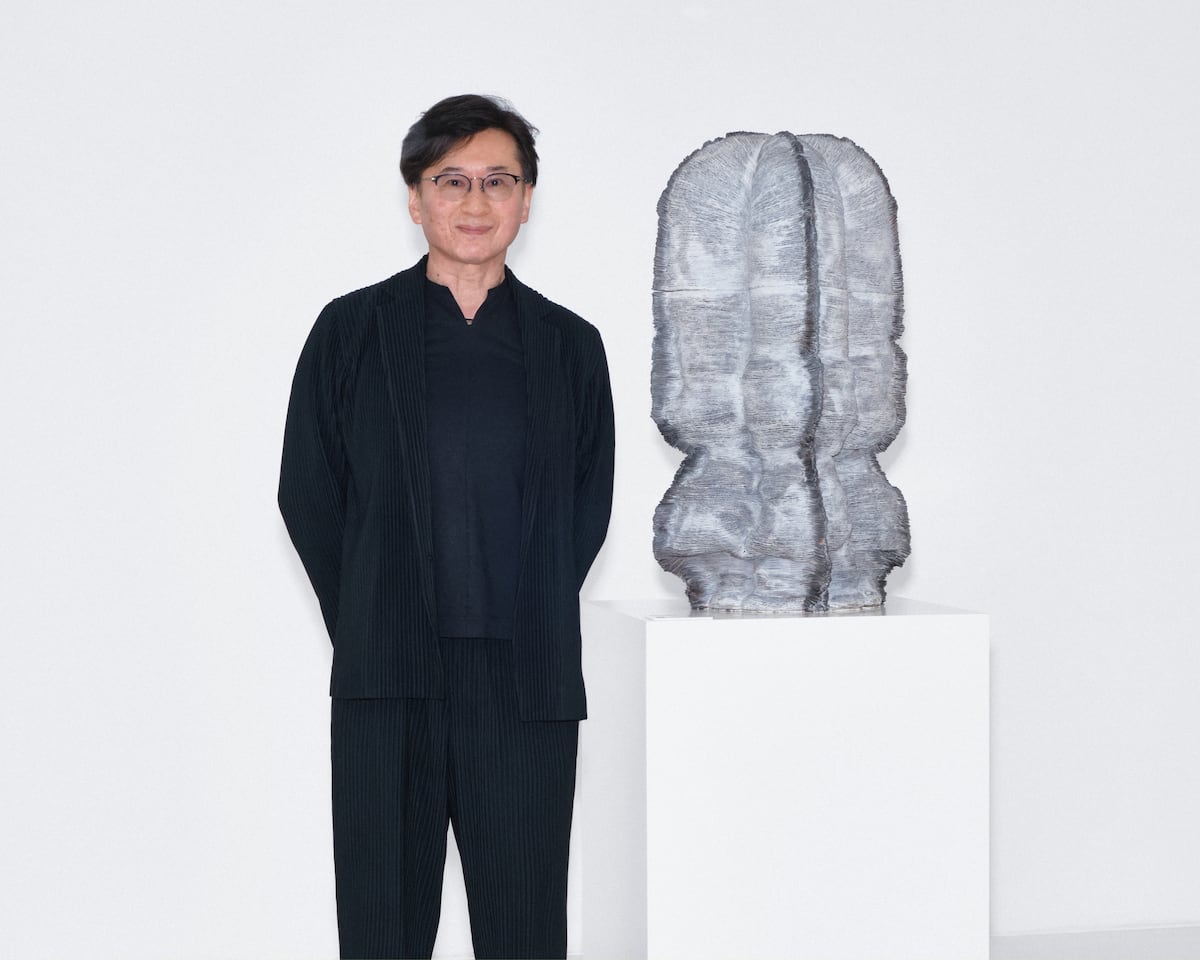

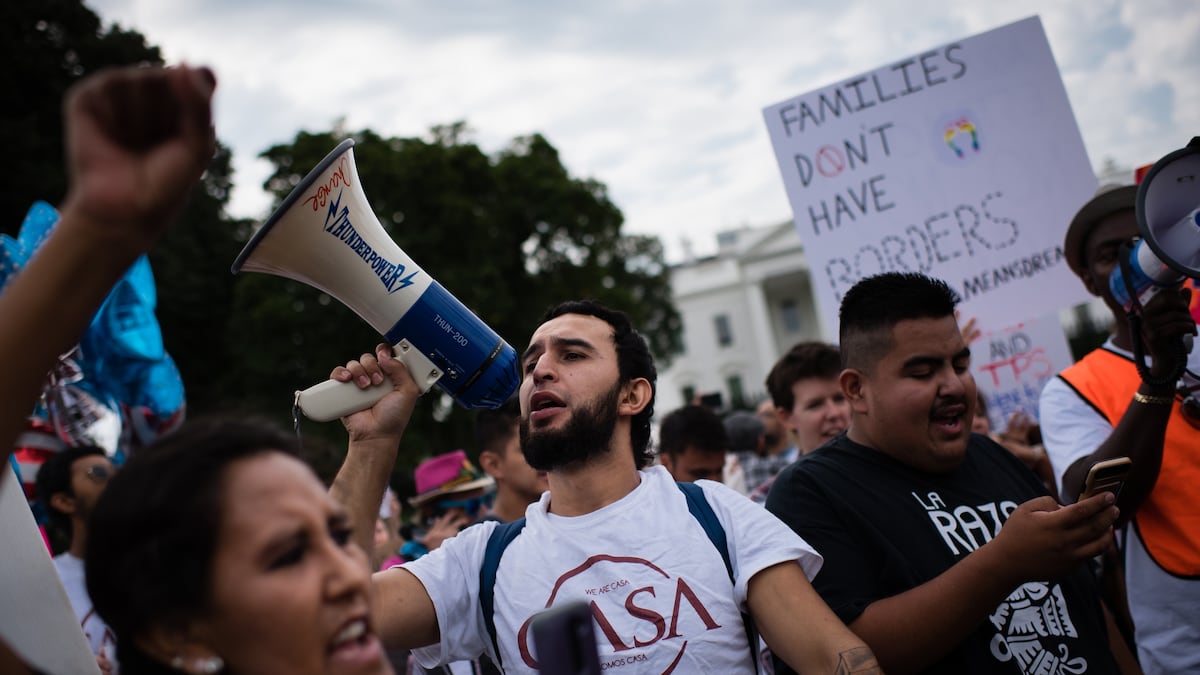

Comentarios